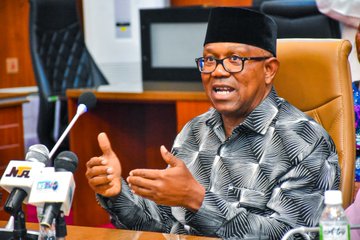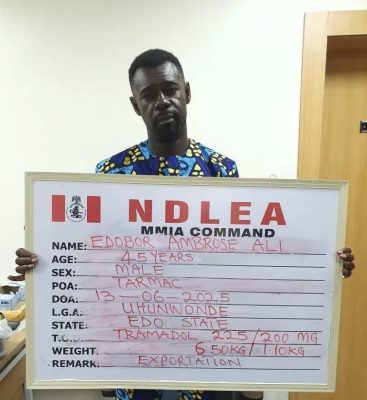
Jega Urges Caution on Electronic Voting Rollout
Professor Attahiru Jega , former Chairman of the Independent National Electoral Commission (INEC) , has called for a gradual rollout of electronic voting in Nigeria , citing infrastructural and cybersecurity limitations.
He made this known during a panel session at the June 12 edition of The Platform Africa , monitored by News.ng.
“We should adopt e-voting—but not overnight,” he said.
“It’s not something that can happen suddenly.”
Jega urged policymakers to evaluate Nigeria’s readiness before pushing full-scale implementation of electronic voting systems.
Why Nigeria Isn’t Ready for Full E-Voting Yet
One of the main obstacles to electronic voting in Nigeria is inadequate technological infrastructure , especially in rural areas.
Jega highlighted how countries like Estonia and India manage their electoral tech better than Nigeria—despite being more advanced.
“In Estonia, they use internet voting because they have strong digital support systems.”
“India, despite its size, still uses mechanical voting machines. They are ahead of us technologically.”
He noted that many parts of Nigeria still struggle with basic internet access, making large-scale e-voting impractical at this time.
“Not much has happened in terms of improving the infrastructure we need,” he added.
Legal Progress Not Matched by Tech Development
Jega acknowledged progress in Nigeria’s legal framework, pointing out that the Electoral Act once banned e-voting outright until it was amended in 2022 .
“Between 2015 and 2019, there was no legal basis for even piloting electronic voting,” he explained.
But he warned that legal reform alone isn’t enough. The country must also build the necessary technical environment to ensure safe and credible elections.
Learning from Past Electoral Practices
During his tenure as INEC Chairman, Jega introduced the use of university professors and lecturers in election processes to promote transparency and fairness.
He explained that resident commissioners used to announce results while handling material deployment—creating conflicts of interest and room for manipulation.
To fix this, he worked with university leaders to recruit academic staff under transparent conditions.
“A vice-chancellor who has served 35 years in academia is unlikely to risk everything for political gain.”
Despite media reports suggesting widespread corruption among academics involved in elections, Jega clarified that only about two professors were ever prosecuted for misconduct—a statistically low number.
Piloting E-Voting First Is the Way Forward
Jega suggested starting with small-scale trials before nationwide adoption.
“Now that the legal restriction has been lifted, INEC should begin by evaluating available technologies and initiating pilot tests.”
He recommended testing e-voting in controlled environments such as:
- Professional association elections
- Urban centers like Abuja or Lagos
This would allow INEC to assess performance, identify flaws, and improve systems before expanding.
Mobile Platforms Aren’t Built for Electoral Use
While Nigerians increasingly use mobile technology for personal transactions, Jega warned against assuming these platforms are secure enough for elections.
“Mobile money apps like OPay or Flutterwave work for individuals—but not for national votes.”
He emphasized that election-related software requires stronger encryption, verification, and anti-fraud measures than consumer financial tools.
“Cybersecurity requirements for elections are far more stringent. In Nigeria, it’s just not viable yet.”
Call to Action: Share Your Thoughts!
Do you agree with Prof. Jega’s gradual approach to electronic voting ? Should Nigeria test small-scale pilots first?
💬 Leave a comment below and join the conversation on Nigeria’s future in electoral innovation.
📢 Don’t forget to share this article to raise awareness about the technical and ethical hurdles of adopting electronic voting in Nigeria.













Be the first to leave a comment